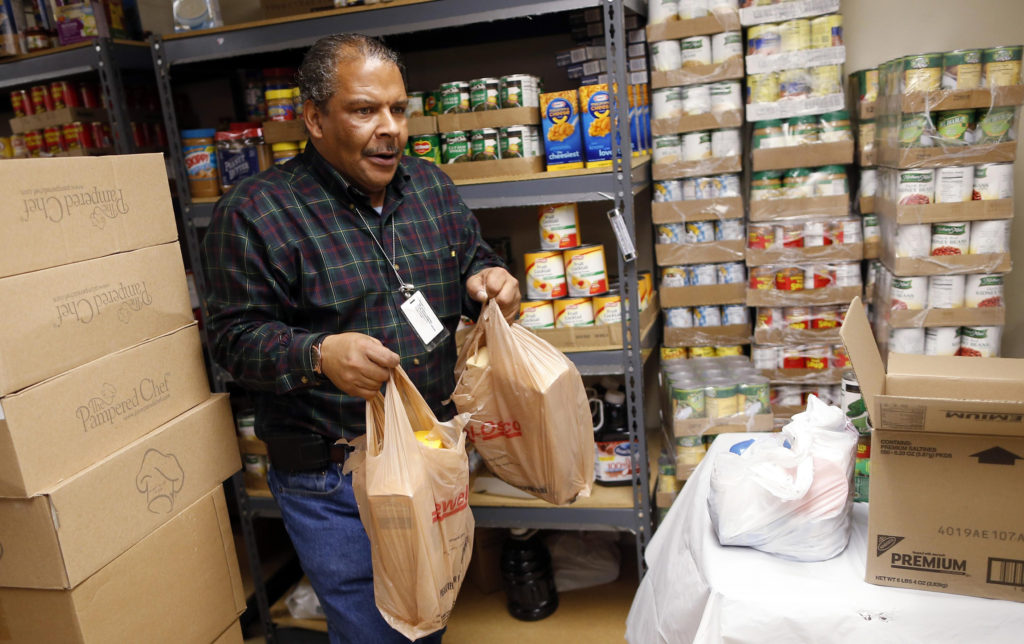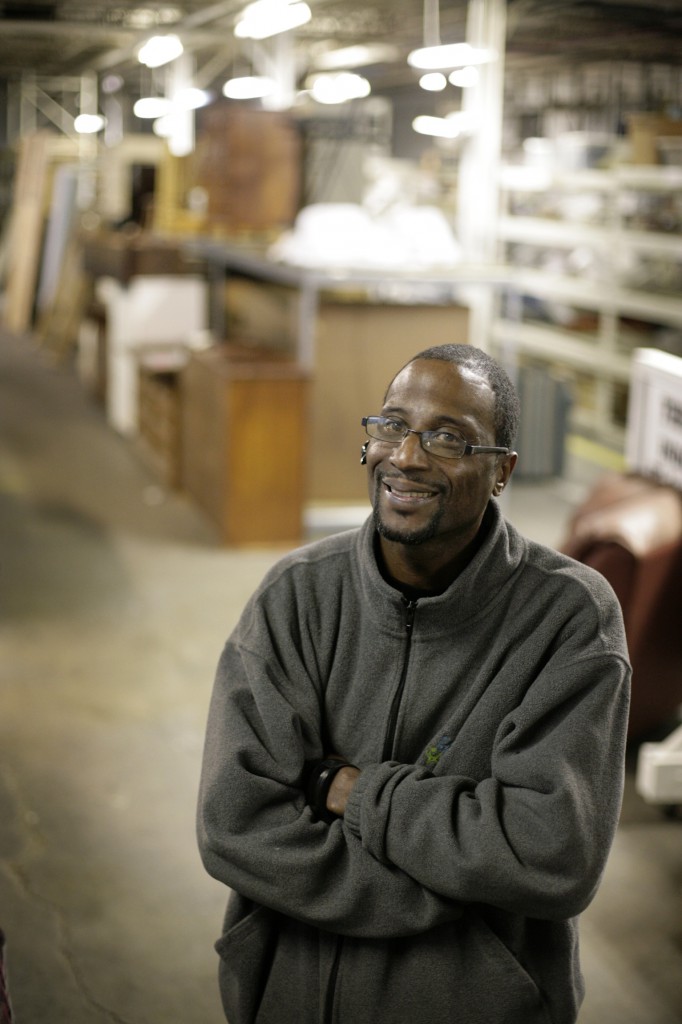
WASHINGTON (CNS) — Concerned with widely held negative perceptions about people who live in poverty, advocates attending the National Poverty Summit pledged to reframe how Americans see their poor neighbors and to work to build stronger relationships across economic classes.
The advocates from several national organizations said April 2 it was unrealistic to characterize the 46 million people living in poverty as unwilling to work while preferring to live in a cycle of dependence on government programs.
They also pledged to collaborate more closely when delivering social services and speak with a unified voice to shape public policy when it comes to state and federal support for programs that lift people out of poverty.
It’s time, said Susan Dreyfus, president and CEO of the Alliance for Children and Families, to view people in poverty as neighbors and see that in a prosperous society, poverty is unacceptable.
“We have to talk about the human capital assets of this country,” she said. “We have to talk about health and education and what America needs to be prosperous. We have to really make sure to elevate the place and presence of the very people we are talking about.”
The measure of success, she said, must be determined by whether people are able to move out of poverty, live healthy and secure lives and move down the path to education and employment.
Dreyfus urged the 120 summit attendees to move from “program thinking to social change thinking.”
The call was welcomed by many in attendance including Fr. Larry Snyder, president of Catholic Charities USA, which convened the summit. In recent years, Catholic Charities USA has led a nationwide effort to partner with other faith-based and secular social service agencies to reduce poverty.
Father Snyder told Catholic News Service that social change must be incorporated into the work of diocesan Catholic Charities agencies. It’s a concept that’s rooted in the Bible and Catholic social teaching, he said.
“To me it’s that issue of outputs versus outcomes. What are your real goals? Our real goal has to be change. We’re talking about changing people’s lives, changing people’s settings. That’s where it’s not enough to measure how many shelter beds are filled. If that’s your goal, we’re not talking change, we’re not talking really getting people out of poverty,” Fr. Snyder said.
He acknowledged that social workers must understand that social change is necessary if anti-poverty programs are to be judged successful.
[quote_box_right]RELATED:
- ‘War on Poverty’ anniversary sparks renewed commitment to the effort
- Blog: Studying poverty[/quote_box_right]During a panel discussion of top social service agency executives, Fr. Snyder stressed the importance of innovation in programming. While social service agencies can take credit for helping lift people out of poverty since President Lyndon Johnson declared a “war on poverty” in 1964, he said new ideas and concepts that involve people struggling with hunger, homelessness and unemployment every day are necessary to reduce the country’s poverty rate.
He also said that because social service agencies have spearheaded the decline in poverty over the past 50 years, they must be at the table when policymakers are determining what avenues to follow to address the country’s 15 percent poverty rate.
The daylong conference gave representatives from several organizations the opportunity to review successful programs that have helped people in poverty to explain how they have developed programs that take a personal approach with families, guiding them to stable employment, affordable housing and quality health care.
In many of the presentations, the focus was on intensive one-on-one relationships, a model that was described as accompaniment.
Charlotte Haberaecker, president and CEO of Lutheran Services in America, described the arrangement as walking alongside people.
“It’s not that we’re necessarily helping out others that are less fortunate than ourselves but recognizing our humanity with each other and working neighbor to neighbor,” she said.
Gregory Kepferle, CEO of Catholic Charities of Santa Clara County, Calif., later described the effort as walking with people as they crossed a bridge to stability in their lives.
“They’re lifting themselves up. We’re helping them to cross the bridge. They’re choosing to cross that bridge. We’re making sure the bridge is there. That’s our job, on the policy and the structure, we’ve got to build that bridge and make sure it’s there so they can walk across that bridge,” he said.
Efficiency and collaboration were among other topics discussed throughout the day.
David Barringer, CEO of the Society of St. Vincent de Paul, particularly asked the agencies in attendance to look for ways to streamline as much as possible so that more funds can benefit the people most in need. He also called for more involvement from the business sector and people in poverty in shaping programs.


“When I talk to people in poverty they don’t say, ‘Please create a government program.’ They say, ‘Help me get a job.’ They don’t say, ‘Please fix the Social Security program.’ They say, ‘Help me feed my kids today,'” Barringer said.
For more than an hour, Rep. Richard Hudson, R-N.C. and Rep. Jim McGovern, D-Mass., focused on the need for members of Congress to find common ground in order to reduce poverty. Both said they became friends as they have worked on poverty-related proposals.
Both also called upon their elected colleagues to visit social service agencies to talk with staff and people living in poverty.
However, they diverged on how to address poverty concerns, with Hudson supporting the budget introduced April 1 by Rep. Paul Ryan, R-Wis., which calls for additional cuts in spending on social services and the Supplemental Nutrition Assistance Program and McGovern saying that such cuts would decimate programs serving people in poverty.
Also in attendance was Melissa Rogers, executive director of the White House Office of Faith-based and Neighborhood Partnerships. She said she wanted to learn more about how the agencies were partnering and to determine which programs would receive White House support.
— By Dennis Sadowski, Catholic News Service






